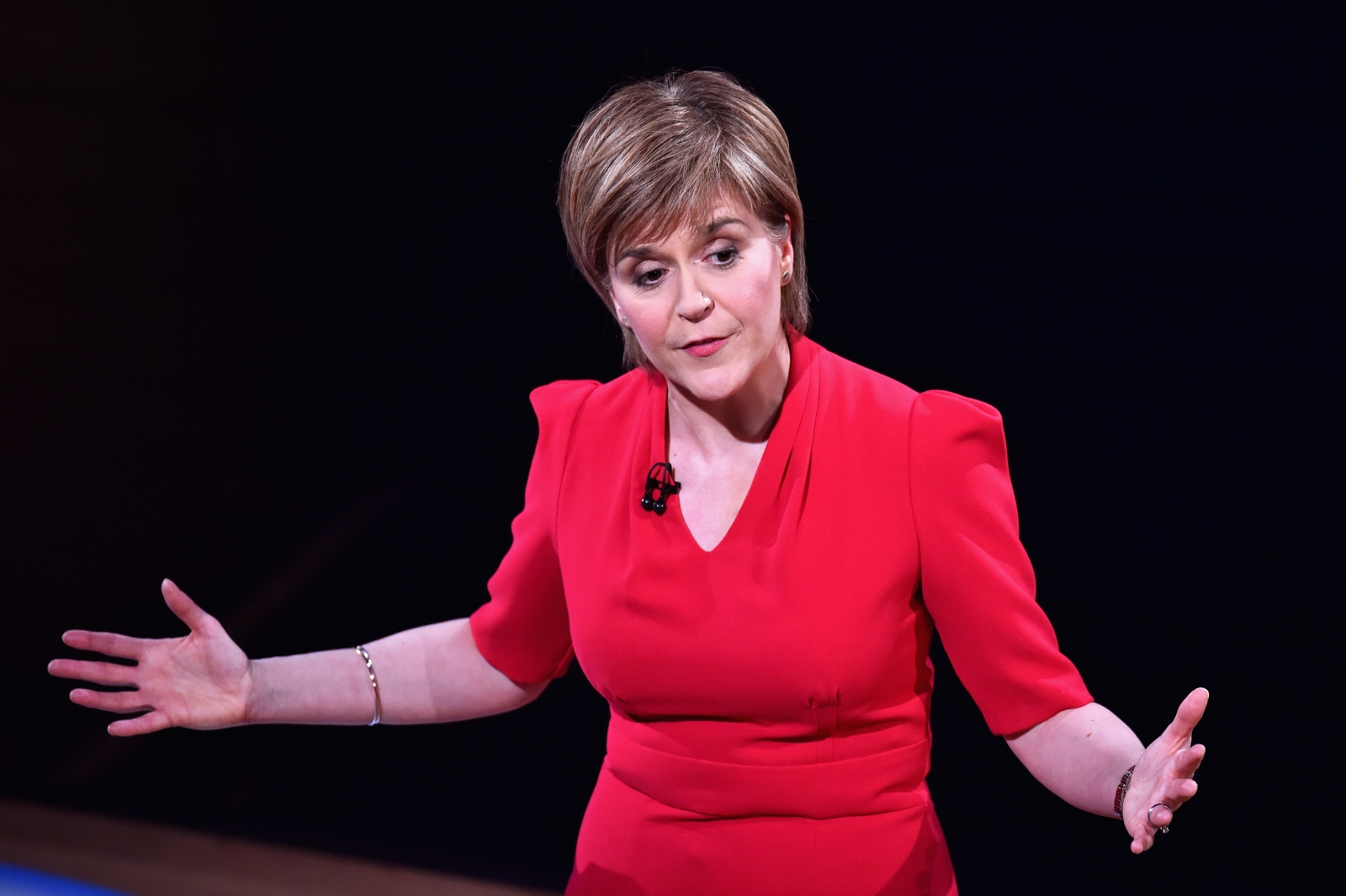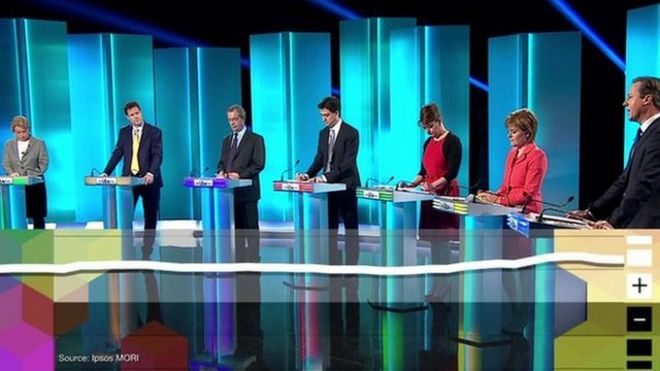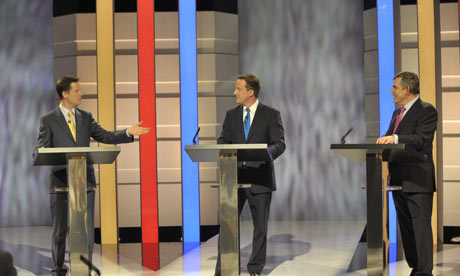The fact that nobody else did either is little consolation: the Conservative Party has won a majority of 6, and David Cameron will return to No.10 Downing Street as Prime Minister. Whilst most people anticipated that the Tories might well win largest party, no-one thought that they would manage to win outright. The pre-election polling has never been so drastically wrong, even in the 1992 debacle.
So, is it time for everyone to the left of the Tory neoliberals to curl up in a corner and cry? Well, no. The temptation may be great, but I feel it is one that we should resist; for now, at least. All is not quite lost just yet. Here is a quick rundown of the major events of election night, and exactly what they mean for the future of this country.
 The Conservatives won a majority of twelve. Clearly, a Tory government is not the result I or many others on the left wanted. The failures of the Conservatives over the last five years are stark: Real wages have entered their longest period of sustained decline in at least 50 years, the UK's GDP per capita is still lower than its pre-recession peak, the deep cuts to welfare have resulted in dozens of deaths and left hundreds of thousands of people destitute, the top-down reorganisation of the NHS has wasted millions and allowed creeping privatisation to continue... I could go on, but I'd only bore you. Suffice it to say, the Tories have had a terrible effect on this country.
The Conservatives won a majority of twelve. Clearly, a Tory government is not the result I or many others on the left wanted. The failures of the Conservatives over the last five years are stark: Real wages have entered their longest period of sustained decline in at least 50 years, the UK's GDP per capita is still lower than its pre-recession peak, the deep cuts to welfare have resulted in dozens of deaths and left hundreds of thousands of people destitute, the top-down reorganisation of the NHS has wasted millions and allowed creeping privatisation to continue... I could go on, but I'd only bore you. Suffice it to say, the Tories have had a terrible effect on this country.However, all is not entirely lost. The Conservatives may have won a majority, but it is a small one; a much reduced majority, in fact, from that the Coalition has enjoyed since 2010. This means that Cameron will find it increasingly difficult to govern as backbench rebels - of which there will be many, you may be sure - hold his party to ransom. The corollary of that, of course, is that he may have to step up the anti-Europe and socially conservative rhetoric to appease the Tory old guard. So, the effects of this small majority may be good or bad, but the new government is certainly going to be far from stable.
The leaders of the three main opposition parties have resigned. Nick Clegg, Ed Miliband and Nigel Farage have all resigned as leaders of their respective parties. In Miliband's case, this is reasonable; under his leadership, the party lost seats and suffered electoral wipeout in Scotland, due at least in part to his personal inability to connect with the electorate. He represents the metropolitan champagne socialist branch of Labour, and this was obviously not something the people of the UK could believe in.
Clegg's departure is also fair enough. The Liberal Democrats have been reduced to just 8 seats in the Commons, putting them in joint-fourth place with the DUP. From their impressive performances at the 2005 and 2010 elections, this is a long way to fall, and Nick Clegg's decision to take the party into coalition is certainly responsible.
The resignation of Nigel Farage (having failed to win South Thanet) is, quite frankly, the best news I've had all day, but it is also worrying. Farage has been the figurehead of UKIP for so long that his departure (however temporary I suspect it may be) could cause UKIP to collapse (a very good thing), or it could allow the far-right elements within the party to take over. Make no mistake, Nigel is by no means the worst of the bunch, and a UKIP pulled even further to the right is a scary prospect.
Scotland went SNP in spectacular fashion. The SNP swept to victory in Scotland, claiming all but three of the country's 59 seats. The huge bloc of nationalist MPs that Nicola Sturgeon will be sending to Westminster (led pretty soon, I suspect, by our old friend Alex Salmond) will be a thorn in David Cameron's side. He know's that his small majority means that a few rebels could rob him of the ability to govern, and the SNP will hammer home any advantage they get. However, their principled tradition of not voting on matters which do not affect Scotland will limit considerably their effectiveness. This may leave David Cameron with carte blanche to do as he wishes in England, a worrying prospect.
Turnout remained low, though it increased slightly to 66.1%. The continued refusal of a third of the country to cast their vote is a problem. Those who do not vote as a point of principle are unfortunately indistinguishable from those who simply can't be bothered; those who are frankly unable to find any political party they are capable of giving their support to count just the same in the minds of our political masters as those who just don't care. The fact that turnout is traditionally lowest among those groups (young people, ethnic minorities, the unemployed) who the Tory government will be targeting over the next five years makes this an even bigger issue.
The number of big names who lost their seats is shockingly high. They call it a Portillo Moment when a political heavyweight falls at the ballot box, but there have been so many this time around that they might have to change the name. Shadow Foreign Secretary Douglas Alexander, Scottish Labour Leader Jim Murphy, Shadow Chancellor Ed Balls, Business Secretary Vince Cable, Energy Secretary Ed Davey, Chief Secretary to the Treasury Danny Alexander... the list is huge. Most are from the Labour or Liberal Democrat parties, and many fell to the SNP in Scotland, but the decimation of the upper ranks of the main political parties - together with the planned departures of old leading lights such as William Hague, Jack Straw, Malcom Rifkind and Gordon Brown - means that the new House of Commons will have a very different dynamic.
The number of women MPs increased by a third. A piece of uncomplicated good news, for a change, and pretty self-explanatory. Before the election 23% of MPs were women; now it is 29%. That is, of course, still 21% short of the ideal, but it is a marked improvement and one we should be very pleased about. One of these new female MPs, the SNP's Mhairi Black, is also the youngest MP elected since 1667, a huge achievement only made more impressive when you consider she took the seat from Douglas Alexander.
The UK's electoral system is STILL very, very broken. I will end with perhaps the most important point: the discrepancy between vote share and seats in the House of Commons continues to be a huge issue. The SNP won 56 seats with just 4.7% of the vote; meanwhile the Lib Dems won 7.9% but only 8 seats. UKIP won a single seat with 12.6% of the vote, the Greens one with 3.8%. The Tories and Labour are separated by 99 seats but only 6.5% in the vote. You get the idea - there is little real connection between vote share and seat share, and this is disenfranchising madness. You can read my article on PR for a solution to the problem, but the short answer is this: we desperately need as electoral system which ensures that Parliament represents the wishes of the people. It's called 'democracy' - you may have heard of it.
These are just some of the most important results of May the 7th - much more will become apparent over the coming weeks. In the meantime, it is important that the progressives among us redouble our efforts to convince the public that the Tory message of cuts and rampant neoliberalism is not the only way, and far from the best way. May 2020 awaits.










